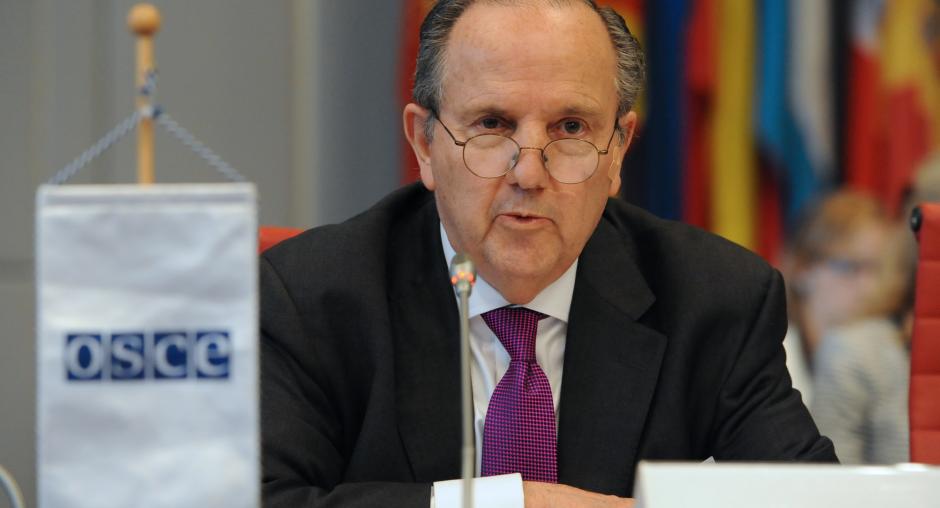Co-ordinated efforts necessary to eradicate the practice of torture, say participants at OSCE meeting

VIENNA, 10 April 2014 – Co-ordinated efforts among states, international organizations and civil society are necessary to end the practice of torture, participants said today at the opening of a two-day OSCE meeting in Vienna.
The meeting, organized by the OSCE’s 2014 Swiss Chairmanship and the OSCE Office for Democratic Institutions and Human Rights (ODIHR), brought together representatives of governments and civil society organizations working to combat torture and other cruel, inhuman or degrading treatment from the Organization’s 57 participating States and Partners for Co-operation.
Swiss Ambassador Thomas Greminger, the Chairperson of the OSCE Permanent Council, said that ending the practice of torture will require the co-operation among actors at all levels.
“Torture and other cruel, inhuman and degrading treatment can only be eradicated through our joint and co-ordinated efforts,” Greminger said. “This is precisely why we focus on the development of synergies between organizations at the global, regional and national levels in a complementary spirit.”
Keynote speaker Juan Méndez, the UN Special Rapporteur on Torture and Other Cruel, Inhuman and Degrading Treatment or Punishment, said that it was the obligation of every OSCE participating State to ensure its laws and practices effectively prevent the practice of torture.
“The OSCE’s dedication to the universal condemnation and eradication of torture is admirable and should serve as a launching point for individual state legislation and procedural norms that holistically and effectively seek to end the ill-treatment of all persons deprived of liberty,” Méndez said.
Ambassador Janez Lenarčič, Director of ODIHR, told participants that even the most stringent laws prohibiting torture often face obstacles to their enforcement, including the suppression of evidence, denied access to justice for torture victims and retaliation against those filing complaints.
“Participating States should work on tearing down these barriers to allow torture to be prosecuted without hindrance,” Lenarčič said. “We should bear in mind that impunity perpetuates torture, and take every possible effort to prevent impunity.”
The Swiss Chairmanship, which has made the prevention of torture a priority in its work in the human dimension, mandated the Association for the Prevention of Torture (APT) to organize a meeting on Wednesday, at which National Preventive Mechanisms from 17 countries in the OSCE region discussed challenges and exchanged good practices in preventing torture.
“The Optional Protocol to the UN Convention against Torture requires States to set up independent torture prevention bodies to monitor all places of deprivation of liberty,” said Mark Thomson, Secretary General of the APT. “The majority of the OSCE States already have a so-called National Preventive Mechanism in place. It has been very reassuring to see the level of commitment and constructive dialogue between the National Preventive Mechanisms.”
